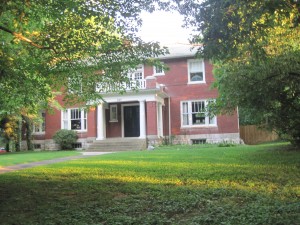The 60s in Nigeria was perhaps as tumultuous as it was in the US, but only for different reasons. While Nigeria was dealing with its value and governance problems, this one was dealing with race, drug and gang issues. I still hear it spoken of with a tone that suggests an underlying dread of the heaviness of the times, although much of what I glean from reading Lewis Black’s irreverent autobiography Nothing Sacred is that much of those who lived in that decade went through it only through the aid of consciousness-blurring drugs and culture. Much of what I know of the Nigerian equivalent however are still in and around the nation’s politics today, but mostly calcified in Wole Soyinka’s memoirs The Man Died, and (most especially) Ibadan, the Penkelemes Years.
 I thought back to an episode tonight on the drive back home from school through the open night surrounding the university town. The young writer – then a professor at one of Nigeria’s new universities – had been kicked out of his campus residence, so he moved his company of thespians into one of the abandoned government buildings at Eleiyele. He simply colonized it, without authorization and without paying rent to anyone, and they lived there for months until the government – responding also, not simply according to principle, but in a political retaliation for the man’s already rebellious reputation in the political terrain – sent in policemen to route them out. It sounded like some really fun times.
I thought back to an episode tonight on the drive back home from school through the open night surrounding the university town. The young writer – then a professor at one of Nigeria’s new universities – had been kicked out of his campus residence, so he moved his company of thespians into one of the abandoned government buildings at Eleiyele. He simply colonized it, without authorization and without paying rent to anyone, and they lived there for months until the government – responding also, not simply according to principle, but in a political retaliation for the man’s already rebellious reputation in the political terrain – sent in policemen to route them out. It sounded like some really fun times.
What got me thinking about all this, of course, is me wondering what it would be like to do the same here and now, in a country like this, and in this economy. An empty building. A terrible economy. A hungry young professor and a restless entourage of a young colleagues, friends and hangers-on hunting for deer and geese at night and living – for as long as the adventure lasts – in a socialist utopia that actually exists nowhere else. I like the kind of mental tickling I get from thinking about scenarios like this. And then I get to blog about it. 🙂
No Comments to Transition so far. (RSS Feeds for comments in this post)
No one has commented so far, be the first one to comment!